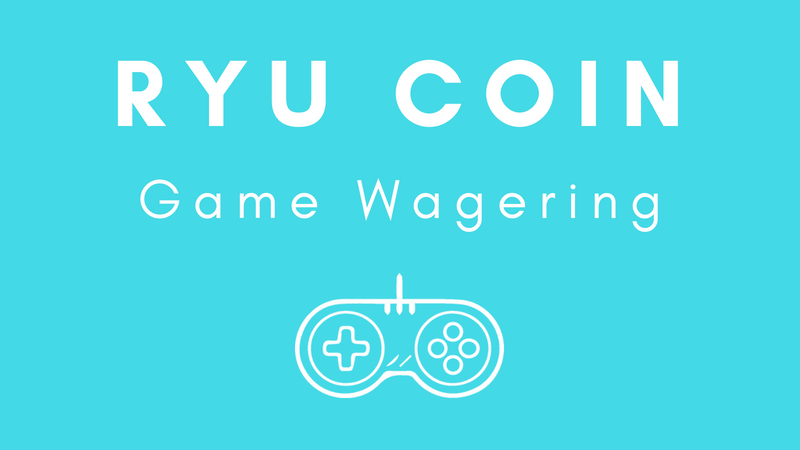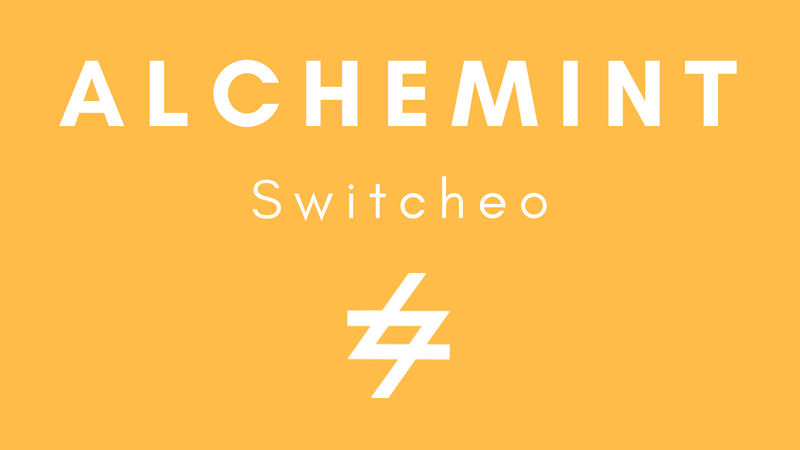
Ryu Coin, a NEO based project that will enable video game players to bet on themselves in matches against other gamers, has published its white paper.
The white paper begins by outlining the economic case for the RYU token, the betting platform’s native currency, in the gaming industry. It claims multiplayer video games are one of the largest and steadily growing industries today, boasting 2017 revenues of $36 billion dollars and with regular consumers found in a majority of United States households. It also states that the gaming industry has seen the rise of competitive online games in recent years, some free-to-play, with microtransactions and online purchases becoming a more important source of revenue for game developers.
Ryu Coin aims to provide a solution for game developers who are struggling to monetize online content in a way that will also build and engage player bases. It also seeks to add another layer of depth and intensity to the gaming experience.
Ryu Vault
The Ryu Vault smart contract, to be deployed on the NEO blockchain, is central to the platform and will contain the logic for RYU token wagers including: deposits, withdrawals, match events, distribution and disputes.
The Ryu Vault smart contract allows for two improvements over existing skill-based wagering services: Firstly, the users maintain control over their own money, and they can deposit or withdraw funds that are not actively wagered on demand from the smart contract. This is faster than sending winnings to players via paper check, or refunds via PayPal. Secondly, many of the banking and administrative functions are automatically handled via smart contract. Ryu plans to charge a 10 percent fee on all wagers, which it claims is significantly lower than its largest competitor.
Ryu Coin CEO Ross Krasner commented that “We originally began building our platform on Ethereum but switched over to NEO for a number of reasons. Most importantly for us, NEO is faster and charges less for transactions. The current GAS fees will allow gamers to wager extremely small amounts, and the 15-20 second block time will ensure that fast-paced games are not slowed down.”
The Ryu Vault smart contract can be integrated with multiplayer games directly, or through the Ryu Server API. A mobile app known as Ryu Home Base will be necessary for players to place wagers on the Ryu platform. Games will be begin after Ryu Home Base two-factor authentication and GPS location data verifies the participation and legal jurisdiction of both players in the wager. Ryu’s smart contract will automatically distribute wagered funds 30 minutes after it learns the outcome of the match.
Game developers will recieve 4% of the wagers if they utilize Ryu’s Server API to interface with the Ryu Vault smart contract, or 5% of the wagers if they program their game to call the smart contract’s functions directly. Games will be whitelisted by the Ryu Team to prevent fraudulent games and non-skill based games from using the platform.
Dispute resolution
In the event of a disputed outcome, a mixture of semi-trusted and trusted (Ryu Team) arbitrators will be engaged through a dispute mechanism to determine the rightful outcome. 1% of all wagers will be sent to an arbitration pool to fund investigation and resolution of any issues. Users who would like to become arbitrators will need to stake a number of RYU tokens in the Ryu smart contract for six months to become eligible. Arbitrators will receive trust points and RYU tokens by casting votes that agree with the majority opinion. Larger wagers will attract larger panels of more highly trusted arbitrators to review presented evidence. Players will be able to appeal verdicts directly to the Ryu Team to discourage fraud from dishonest semi-trusted arbitrators.
Operation and expansion
Ryu Coin intends to begin its operations in certain U.S. states where it is currently legal to wager on one’s own performance in a game of skill, and then expand to international markets where betting laws are generally looser. In the future, the team has cast its eye towards Asia for longer-term expansion due to high rates of cryptocurrency adoption, as well as the presence of major game developers and a large dedicated gaming community.
Ryu Coin has partnered with various game development studios, such as Infinity Games, who has had over 30 million downloads, and Crescent Moon Games, whose Axe.io multiplayer battle game has had over 500,000 installs since its release in May 2018. The wagering service aims to expand into more games in 2019 with a publicly available SDK.
Mr. Krasner stated that “Our core team has experience working at major tech firms including LinkedIn, GrubHub and Amazon. We do all of our development, marketing and business development in-house.” Ryu Coin has also brought on advisors that include regulation and compliance experts from Solidus Labs (ex-Goldman Sachs fintech experts) as well as City of Zion’s own Nick Fujita. As of now, development continues on the Ryu Vault smart contract while the team recruits additional game developers. Ryu Team plans to publish its smart contract on the NEO MainNet and hold its public token sale in the fourth quarter of 2018.
Mr. Krasner added that further token sale details will be coming soon, and encouraged the NEO community to join the Ryu Telegram community for the latest information.
More information on Ryu Coin can be found at the below links.







About The Author: Colin Closser
Colin Closser, M.D., was a speaker at the first NEO DevCon in San Francisco. A devoted contrarian, he has managed the improbable: a peaceful and healthy life, despite holding a medical degree. He aspires towards the wisdom of Michael Lewis and Nassim Nicholas Taleb.
More posts by Colin Closser